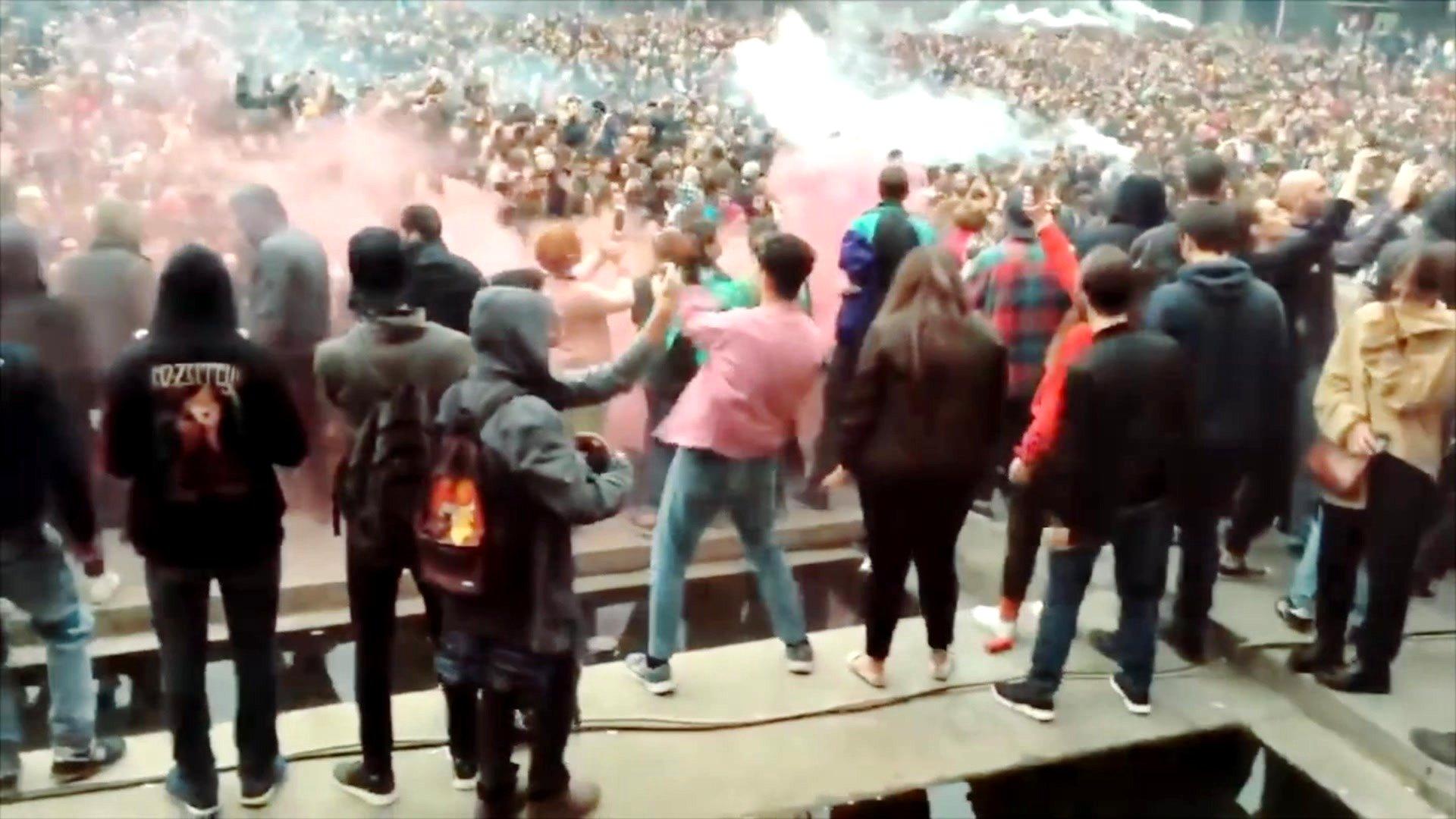Georgia protests: Thousands storm parliament over Russian MP's speech
- Published
Riot police blocked crowds storming Georgia's parliament
Some 240 people were hurt in clashes as protesters tried to storm Georgia's parliament after a Russian MP took the speaker's seat in parliament.
Riot police stopped them from entering the building, reportedly using tear gas and rubber bullets.
Anger erupted when Sergei Gavrilov addressed an assembly of MPs from Orthodox Christian countries.
Tensions with Russia are high, 11 years after they fought a war over the breakaway region of South Ossetia.
More than 100 people were still being treated in hospital hours after the clashes on Friday, Georgian officials said. Among the 240 hurt, 80 were police, they added.
A doctor told Georgian media that two people had lost an eye.
Parliament Speaker Irakli Kobakhidze announced his resignation on Friday - one of the protesters' demands.
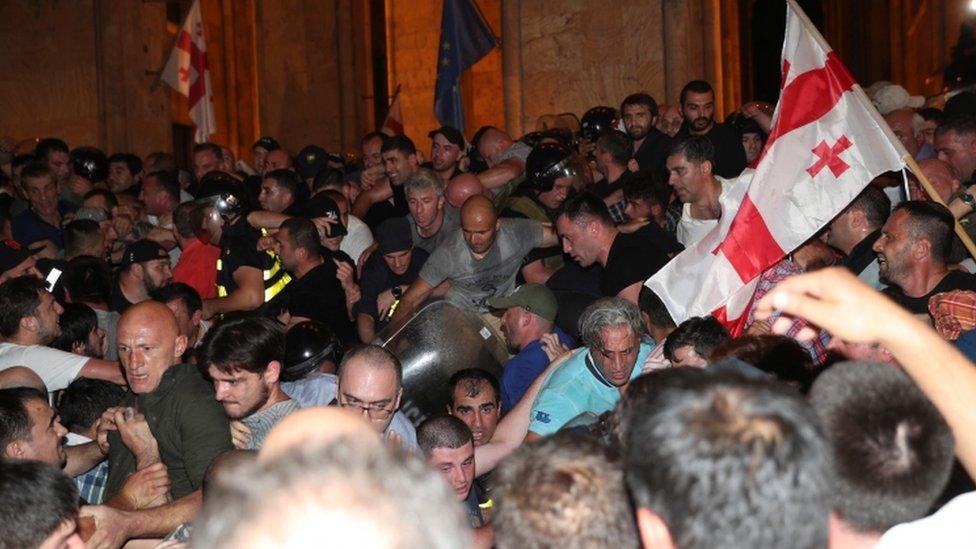
Policemen attempt to block protesters during a rally against the visit of the Russian delegation
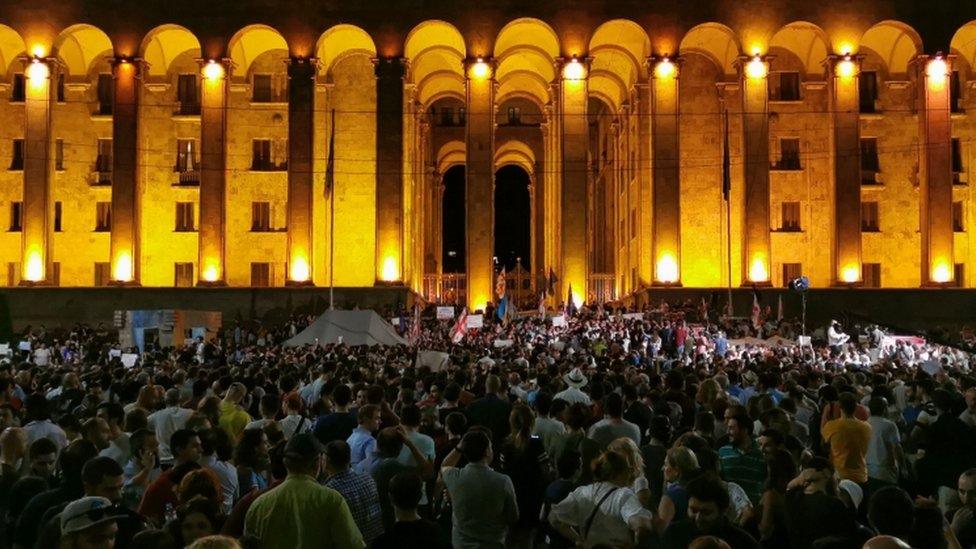
People rally outside the parliament in Tbilisi
Georgian President Salome Zourabichvili condemned Mr Gavrilov's action as a "major crime" and appealed for calm.
Mr Gavrilov blamed the clashes on "fake news" in which he had been wrongly accused of fighting against Georgia in the early 1990s.
Russia's foreign ministry accused Georgia's opposition of trying to prevent an improvement in relations.
What caused the protests?
Mr Gavrilov was taking part in the Interparliamentary Assembly on Orthodoxy (IAO), a body set up by the Greek parliament in 1993 to foster relationships between Christian Orthodox lawmakers.
Opposition MPs in Georgia's parliament called for protests in response to his decision to deliver a speech from the speaker's seat.
He addressed delegates in Russian, angering politicians and Georgians vehemently opposed to Moscow's presence in the country.
Calling for the Speaker and other officials to resign, about 10,000 protesters breached the police cordon in the capital, Tbilisi.
Some were carrying EU flags and placards reading "Russia is an occupier".
Giga Bokeria, an opposition MP for the European Georgia party, told AFP the rally outside parliament had been "a spontaneous protest by ordinary Georgians".
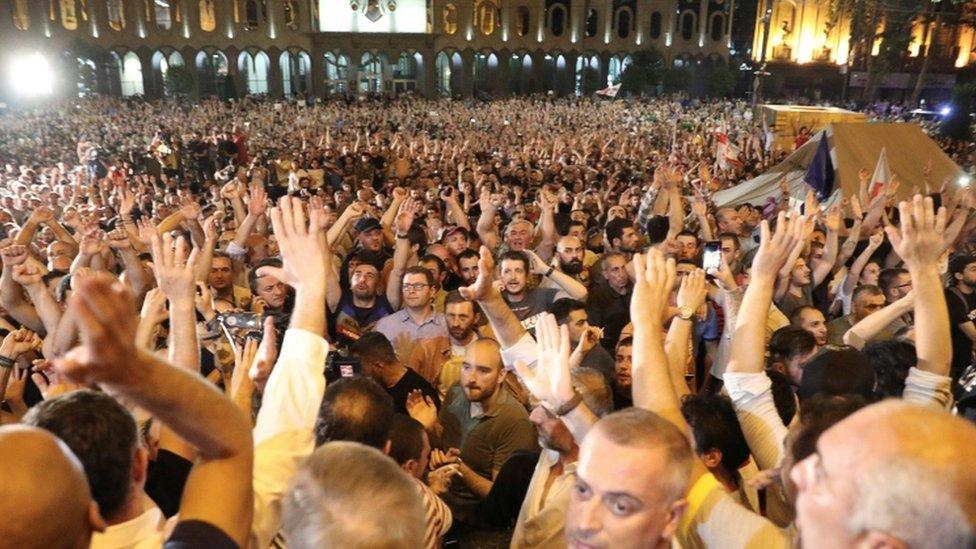
An opposition MP described the rally as "a spontaneous protest by ordinary Georgians"
Inside parliament, opposition lawmakers blocked the presidium and demanded that the parliamentary speaker, interior minister and state security service chief all resign over the incident.
The session was suspended and Mr Gavrilov has reportedly left the country.
"That was a slap in the face of recent Georgian history," Elene Khoshtaria, an opposition member of parliament, said.
Mr Gavrilov later said he had left the building under guard, blaming the clashes on fake reports that he had taken part in wars in Abkhazia and Trans-Dniester. He had "never taken part in any military conflicts", he insisted.

A spontaneous demonstration
Analysis by BBC News' Rayhan Demytrie in Tbilisi
The protest continues outside parliament building in Tbilisi in spite of repeated use of tear gas by the police. Several protesters have been injured, I saw one man with a bleeding mouth who said that he was standing close to parliament entrance and was hit by a rubber bullets.
Riot police gear such as plastic shields and helmets were seized by some protesters and passed through the crowd.
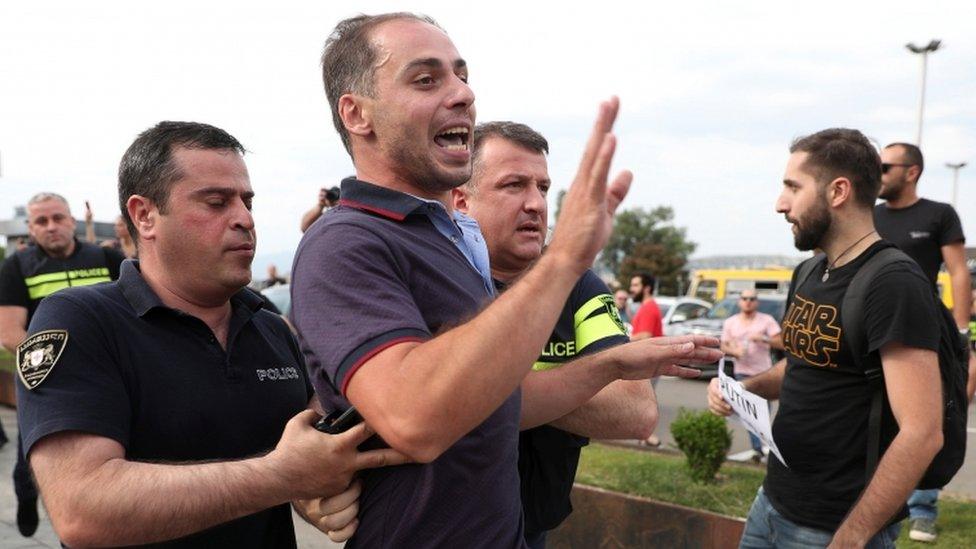
Policemen detain a man during a protest against the visit of the Russian delegation in Tbilisi
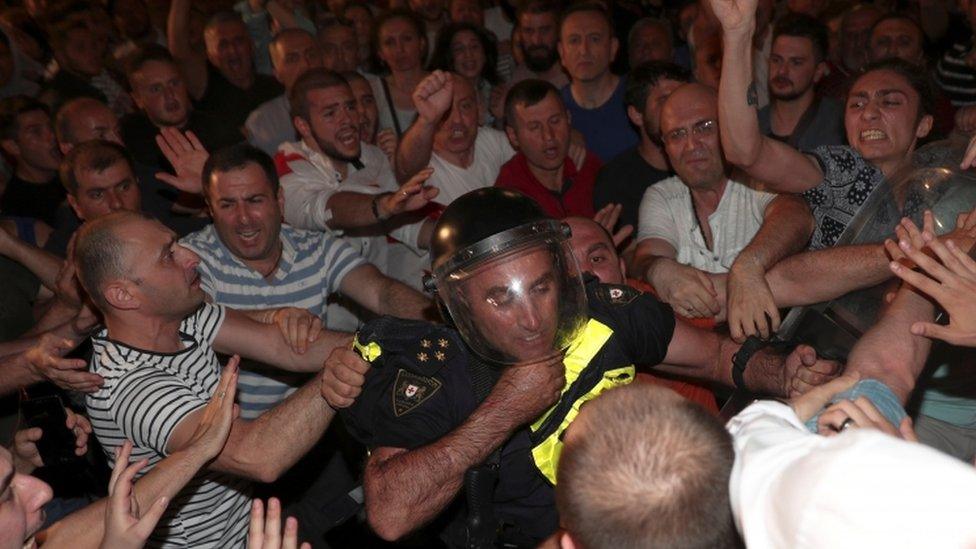
Protesters clash with a policeman during mass a demonstration outside Georgia's parliament
This demonstration gathered spontaneously in response to calls from the Georgian opposition to protest against what many Georgians say was an outrageous act - to see an MP from an "occupying" country entering their parliament.
Anti-Russian sentiment is strong in Georgia which fought a war with Russia over its breakaway region of South Ossetia in 2008. South Ossetia and another breakaway region of Abkhazia are supported by Russia both financially and militarily.
Why are there tensions between Georgia and Russia?
When Georgia declared independence from the Soviet Union in 1991, separatist conflicts erupted in the regions of Abkhazia and South Ossetia.
In August 2008, Georgia attempted to recapture South Ossetia, which it had fought a separatist war against in the 1990s.
Russia poured troops in, ousting Georgian forces from South Ossetia and Abkhazia.
Following a ceasefire, Russia withdrew most of its troops from undisputed parts of Georgia but still maintains a military presence in South Ossetia and Abkhazia, recognising both as "independent" states.
Since then, diplomatic relations between Russia and Georgia have been severed.
To the ire of Moscow, Georgia has ambitions to join the European Union and Nato.
- Published20 June 2019
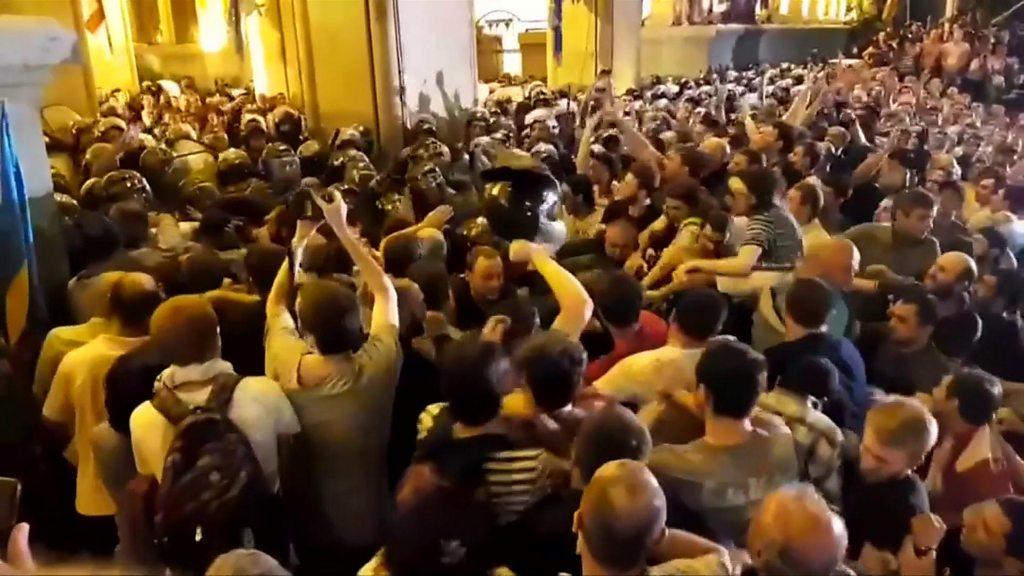
- Published22 October 2015
- Published17 May 2013
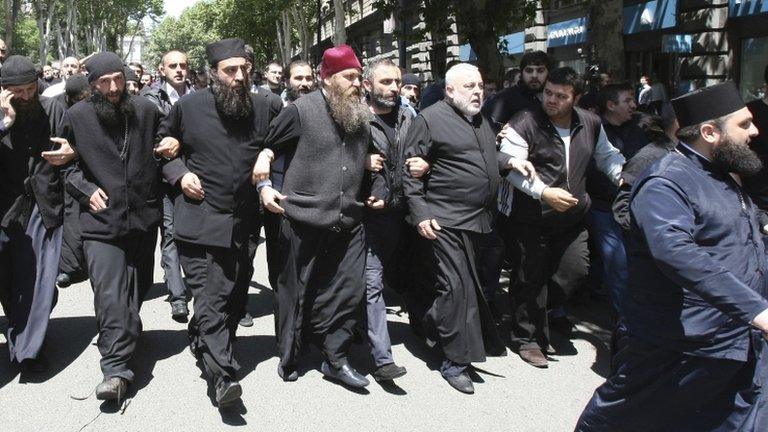
- Published30 July 2018
